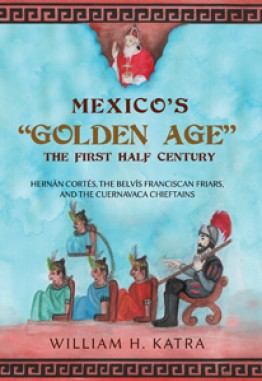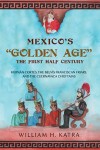Mexico's "Golden Age" : THE FIRST HALF CENTURY
Author: William H. Katra
A Franciscan monk-Mexico's first historian--characterized the four decades following the Aztecs' 1521 overthrow as Mexico's "Golden Age." His intention was to praise the benign, bi-racial society that was then coming into existence. The first of three pillars for this short-lasting society featured an enlightened governing team led by ex-conquistador Hernán Cortés; the country's first bishop, Friar Juan de Zumárraga; respected lawyer and founder of missions, Vasco de Quiroga; and the first two viceroys, Antonio de Mendoza and Luis de Velazco. The second pillar were the Franciscan friars who headed up perhaps the most important religious campaign of the sixteenth century: the decades-long evangelization campaign that would be staffed by nearly a thousand mendicant monks who dedicated their lives to baptize millions of willing Mexicans. Included in this group was the champion of Indian baptism, Friar Toribio Benavente "Motolinía," as well as the leader for Indian education, Friar Pedro de Gante. The third pillar for this emerging society were the native chieftains (this work focuses on those from Cuernavaca) who partnered with the Spanish in governing and uplifting their respective communities. The recent publication of important, heretofore unknown, historical documents justifies the need for a re-examination of events and society during this important period of Mexican history.














